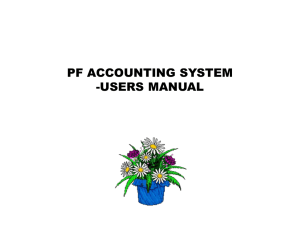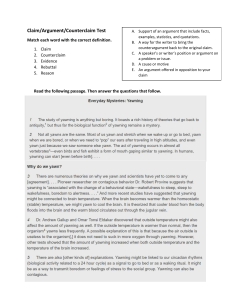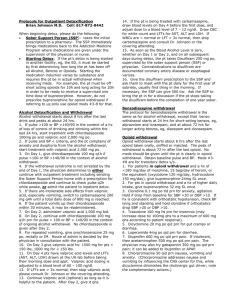Appendix 9: The Clinical Opioid Withdrawal Scale
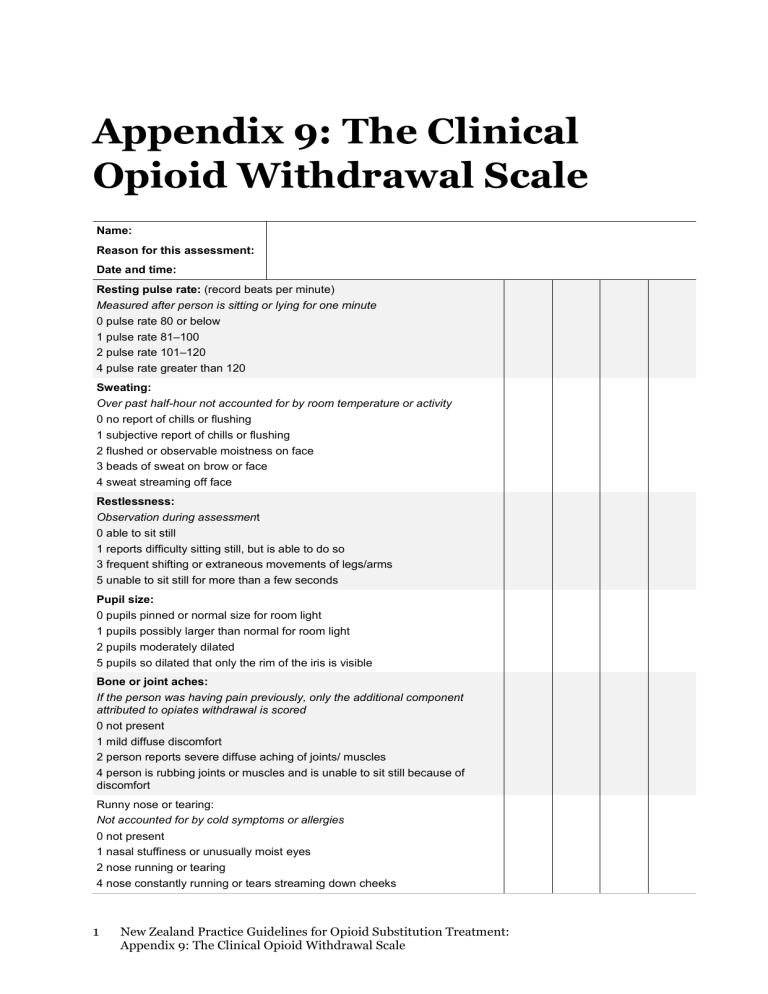
Appendix 9: The Clinical
Opioid Withdrawal Scale
Name:
Reason for this assessment:
Date and time:
Resting pulse rate: (record beats per minute)
Measured after person is sitting or lying for one minute
0 pulse rate 80 or below
1 pulse rate 81 –100
2 pulse rate 101 –120
4 pulse rate greater than 120
Sweating:
Over past half-hour not accounted for by room temperature or activity
0 no report of chills or flushing
1 subjective report of chills or flushing
2 flushed or observable moistness on face
3 beads of sweat on brow or face
4 sweat streaming off face
Restlessness:
Observation during assessmen t
0 able to sit still
1 reports difficulty sitting still, but is able to do so
3 frequent shifting or extraneous movements of legs/arms
5 unable to sit still for more than a few seconds
Pupil size:
0 pupils pinned or normal size for room light
1 pupils possibly larger than normal for room light
2 pupils moderately dilated
5 pupils so dilated that only the rim of the iris is visible
Bone or joint aches:
If the person was having pain previously, only the additional component attributed to opiates withdrawal is scored
0 not present
1 mild diffuse discomfort
2 person reports severe diffuse aching of joints/ muscles
4 person is rubbing joints or muscles and is unable to sit still because of discomfort
Runny nose or tearing:
Not accounted for by cold symptoms or allergies
0 not present
1 nasal stuffiness or unusually moist eyes
2 nose running or tearing
4 nose constantly running or tears streaming down cheeks
1 New Zealand Practice Guidelines for Opioid Substitution Treatment:
Appendix 9: The Clinical Opioid Withdrawal Scale
GI upset:
Over last half-hour
0 no GI symptoms
1 stomach cramps
2 nausea or loose stool
3 vomiting or diarrhea
5 Multiple episodes of diarrhea or vomiting
Tremor:
Observation of outstretched hands
0 No tremor
1 tremor can be felt, but not observed
2 slight tremor observable
4 gross tremor or muscle twitching
Yawning:
Observation during assessment
0 no yawning
1 yawning once or twice during assessment
2 yawning three or more times during assessment
4 yawning several times/minute
Anxiety or irritability:
0 none
1 patient reports increasing irritability or anxiousness
2 patient obviously irritable or anxious
4 patient so irritable or anxious that participation in the assessment is difficult
Gooseflesh skin:
0 skin is smooth
3 piloerection of skin can be felt or hairs standing up on arms
5 prominent piloerection
Total scores
The total score is the sum of all 11 items with observer ’s initials
Score: 5 –12 = mild; 13–24 = moderate; 25–36 = moderately severe; more than 36 = severe withdrawal.
Source: Wesson and Ling 2003.
New Zealand Practice Guidelines for Opioid Substitution Treatment:
Appendix 9: The Clinical Opioid Withdrawal Scale
2
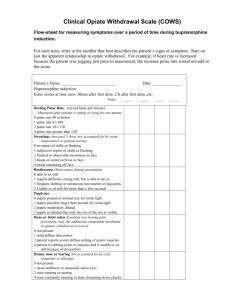
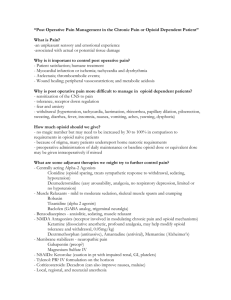
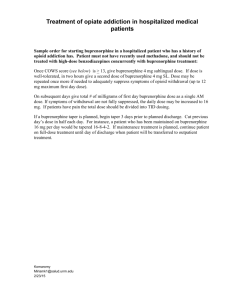

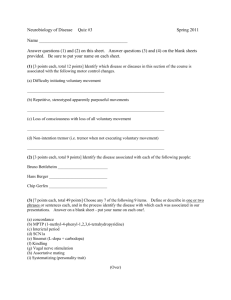

![afl_mat[1]](http://s2.studylib.net/store/data/005387843_1-8371eaaba182de7da429cb4369cd28fc-300x300.png)

